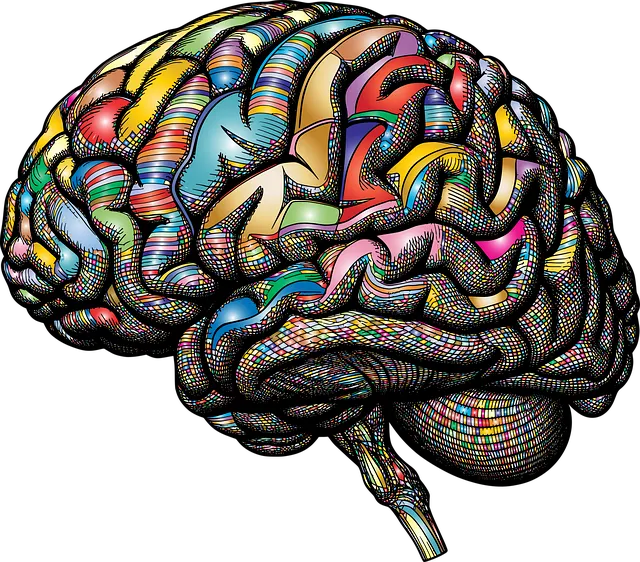Emotional intelligence (EQ) is a powerful tool for personal growth and professional success. Understanding EQ involves recognizing its potential to transform interactions and decision-making. This article explores strategies for building emotional intelligence, focusing on the role of institutions like the Kaiser Permanente Mental Health Center in Westminster, known for its comprehensive mental health services. We’ll delve into self-awareness, self-management, empathy, and social skills as key components for enhancing EQ, backed by expert insights and practical tips.
- Understanding Emotional Intelligence: Unlocking Its Potential
- The Role of Kaiser Permanente Mental Health Center in EQ Development
- Strategies for Enhancing Self-Awareness and Self-Management
- Practicing Empathy and Social Skills for Better Relationships
Understanding Emotional Intelligence: Unlocking Its Potential

Emotional intelligence (EQ) is a powerful tool for personal and professional growth, often highlighted by organizations like Kaiser Permanente mental health center reviews Westminster as a key differentiator in successful individuals. It involves recognizing, understanding, and managing your own emotions, as well as empathizing with others. By cultivating EQ, individuals can unlock their full potential, leading to improved relationships, enhanced decision-making, and better overall well-being.
At the core of emotional intelligence is self-awareness—recognizing your feelings and their impact on your thoughts and actions. This foundation enables people to build confidence, navigate challenging situations with resilience, and even prevent issues like depression. Moreover, EQ plays a crucial role in stress management, which is why workshops focused on these skills, such as those offered by the Stress Management Workshops Organization, are valuable for anyone seeking to thrive in today’s demanding world.
The Role of Kaiser Permanente Mental Health Center in EQ Development

The Kaiser Permanente Mental Health Center in Westminster stands as a beacon for emotional intelligence (EQ) development. With a strong focus on mental health services, the center offers a range of programs that cater to diverse needs. Through their comprehensive approach, they not only provide therapy but also cultivate an environment conducive to learning and practicing essential EQ skills.
One notable aspect is their integration of mindfulness meditation and compassion cultivation practices into treatment plans. These techniques have been proven effective in enhancing emotional well-being promotion, enabling individuals to better understand and manage their emotions. By engaging in such activities regularly, participants can develop greater self-awareness, empathy for others, and resilience—all key components of emotional intelligence. Reviews highlight the center’s ability to create a supportive space where individuals can explore and grow their EQ, ultimately leading to improved relationships and overall life satisfaction.
Strategies for Enhancing Self-Awareness and Self-Management

Building emotional intelligence (EI) is a vital journey for personal growth and improved relationships. One of the cornerstone aspects is enhancing self-awareness, which involves recognizing and understanding your emotions. Start by dedicating time each day to reflect on your feelings and thoughts; this introspection can be facilitated through journaling or mindfulness practices. The Kaiser Permanente mental health center reviews Westminster consistently highlight the importance of self-awareness in managing stress and anxiety effectively.
Additionally, developing coping skills is essential for self-management. Engaging in activities like deep breathing exercises, physical exercise, or creative outlets can help regulate emotions. Mental Health Education Programs Design offer structured ways to learn these strategies, providing tools to navigate life’s challenges with resilience. By integrating these practices into daily routines, individuals can foster better emotional regulation and overall mental well-being.
Practicing Empathy and Social Skills for Better Relationships

Practicing empathy is a cornerstone of emotional intelligence, fostering deeper connections and understanding with others. It involves recognizing and sharing the feelings of another person, which can be enhanced through active listening and perspective-taking. By putting ourselves in someone else’s shoes, we build stronger relationships, improve communication, and create a more supportive environment at home, school, or even at Kaiser Permanente mental health center reviews Westminster.
Social skills, on the other hand, are essential for navigating interactions and forming meaningful bonds. Engaging in open dialogue, showing genuine interest, and practicing effective communication help to foster an inclusive atmosphere that promotes well-being. This is particularly beneficial in stress reduction methods, as it can alleviate social anxiety and improve coping mechanisms. Mental health awareness benefits greatly from these skills, enabling individuals to better understand and support one another during challenging times, ultimately contributing to depression prevention.
Emotional intelligence is a powerful tool for personal and professional growth, as demonstrated by the comprehensive programs offered at the Kaiser Permanente Mental Health Center in Westminster. By understanding emotional intelligence, practicing self-awareness, managing emotions effectively, and cultivating empathy, individuals can enhance their relationships and overall well-being. The strategies outlined in this article provide a roadmap to building emotional intelligence, encouraging folks to take charge of their mental health and navigate life’s challenges with greater ease. For those seeking support, the Kaiser Permanente mental health center reviews highlight its commitment to transforming lives through evidence-based practices.






